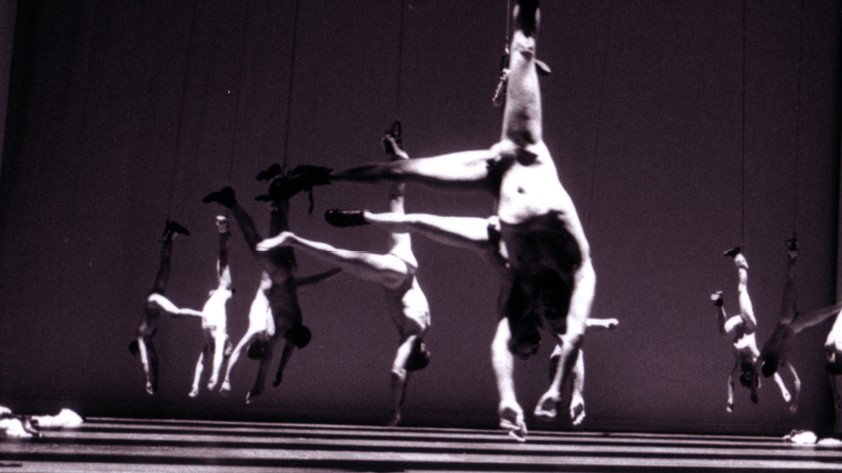Rechnitz. Rehearsal

The drama alludes to the massacre of around 200 forced labourers in the Austrian town of Rechnitz on the night from 24 to 25 March 1945. The brutal mass atrocity was never investigated, the perpetrators were not captured, nor were the bodies ever found. Jelinek’s text allows us to examine how language functions in today’s public debates and what sort of conventions weigh on the way we talk about mass murder and genocide. The closer we come to the brink of horror, the more forcefully language resists truth, grappling for meandering phrases, euphemisms that deform and obscure the real meaning of things. Rechnitz is a discursive essay in which Jelinek, exposing all manner of lies and abuses, ultimately tells us about ourselves.
STAGE READING: Rechnitz (The Exterminating Angel) Elfriede Jelinek
TRANSLATION: Monika Muskała
DIRECTION: Katarzyna Kalwat
CAST: Justyna Wasilewska, Lech Łotocki, Jacek Beler, Gabriela Muskała, Tomasz Tyndyk
From Heroes’ Square to Rechnitz: An Austrian Settling of Accounts
From Heroes’ Square to Rechnitz: An Austrian Settling of Accounts is a book about setting the historical record straight. Featuring interviews with Elfriede Jelinek, Gerhard Roth, Peter Turrini and Ulrich Seidl, it also features commentary on Thomas Bernhard and Werner Schwab – Austrian playwrights who put their finger in the wound, demanding that things repressed and forgotten be brought back into public debate. It is also thanks to them that after decades of moral slumber and relying on the myth of “Hitler’s first victim” to keep collective consciousness in a state of complacency Austrian society undertook to revise memory and assumed responsibility. The national soul-searching hysteria attained its peak with the memorable premiere of Thomas Bernhard’s Heroes’ Square (Heldenplatz). Twenty years later, Elfriede Jelinek in Rechnitz (The Angel of Death) tells a moving story of the force and powerlessness of reminding. A book about Austria’s settling of accounts with its own past is an opportunity for discussion about how history functions in collective memory, also in the context of Polish historical debates in recent years. The road to amnesia is fraught with difficulties because it leads through painful reminders, yet without them there is ultimately no forgiveness and, in the end, no forgetting.
The discussion with Monika Muskała and Katarzyny Kalwat will be moderated by Adam Lipszyc.
COORGANIZED BY Korporacja Ha!art, Austriackie Forum Kultury
See also
-
Winter Light
Theater
25–27.05Winter Light
-
Metamorphosis
Theater
31.05–02.06Metamorphosis
-
Języki przyszłości/Future Tongues
Theater / Dance
06–08.06Języki przyszłości/Future Tongues
-
Angels in America
Theater
18–23.06Angels in America